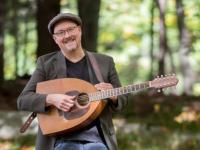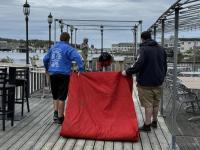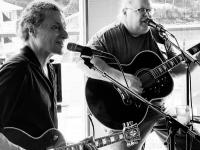More lessons from the STEM forum
My last column shared ideas and insights on student learning from the October STEM forum.
Panelists agreed that students learn STEM subjects best through inspirational teachers who bring depth and passion to their subjects, and incorporate relevant real-world applications and experts into student experiences.
They also praised the importance of open-ended questions and complex problems to help students develop critical thinking skills.
This column will share ideas to strengthen STEM teaching, including a wonderful example already happening right here in Lincoln County.
Many teachers are primarily taught how to teach, and given some education on particular content areas. Panelists suggested that teachers of technical subjects should receive professional level education in their subjects, and ideally work in that field, then learn how to teach what they know.
And because science, technology and engineering don’t stand still, panelists emphasized the importance of continuing education in the content area as part of a teacher’s ongoing professional development. Panelists also stressed the importance of giving teachers time to create new lesson plans, and collaborate with other teachers and experts in the subject matter.
How else can we improve STEM teaching? Panelists spoke about the importance of real-world experiences for students, something teachers cannot provide alone. Teachers need partners at outside institutions to help them make those learning opportunities available for students.
Bigelow Laboratory for Ocean Sciences in East Boothbay is one example of great public/private collaborations — a commitment we need to expand across Maine.
Panelist Ben Twining, director of research and education at Bigelow, described the array of the laboratory’s education initiatives in the context of the STEM discussion. The laboratory’s education programs provide a clear example of the value of experiential, hands-on STEM learning, from the K-12 level to undergraduate and postdoctoral training, and professional development workshops for teachers.
The Bigelow Laboratory Orders of Magnitude (BLOOM) Program brings 16 Maine high school juniors from across the state to the laboratory each spring for a week of hands-on experience with ocean research. An independent assessment of the program completed two years ago showed that 100 percent of all BLOOM students subsequently attend college, 70 percent major in science or mathematics, and half go on to pursue science careers.
The BLOOM high school program is now augmented by a week-long professional development workshop for Maine educators, designed to develop methods for them to bring ocean science into the classroom.
The laboratory’s 10-week summer residency program for undergraduates is based on the principle that mentored, independent research at the undergraduate level enhances students’ chances of entering a graduate program of their choice, and prepares them well for it. The program includes training in state-of-the-art tools and methods to solve current research and practical problems in marine science, along with guidance in written and oral communication skills through seminars and formal and informal research presentations to improve students’ capacity to learn independently.
In addition, the laboratory hosts multiple Cafe Scientifique events every year. These are free, public discussions with scientists about their findings and their work. I’ve spoken multiple times with Maine Department of Education staff about sharing the best of what Maine’s teachers do with classrooms across the state, and Cafe Scientifique would be a great addition to such an initiative.
The valuable insights from the panelists deserve attention and action. This information will inform my work in the legislature, and I hope we can also find ways to encourage many more institutions to get involved in educational partnerships like Bigelow Laboratory’s.
Sen. Christopher Johnson lives in Somerville, and represents Maine Senate District 20. Thanks to Bigelow Communications Director Tatiana Brailovskaya for her input on this two-part series.
Event Date
Address
United States





















